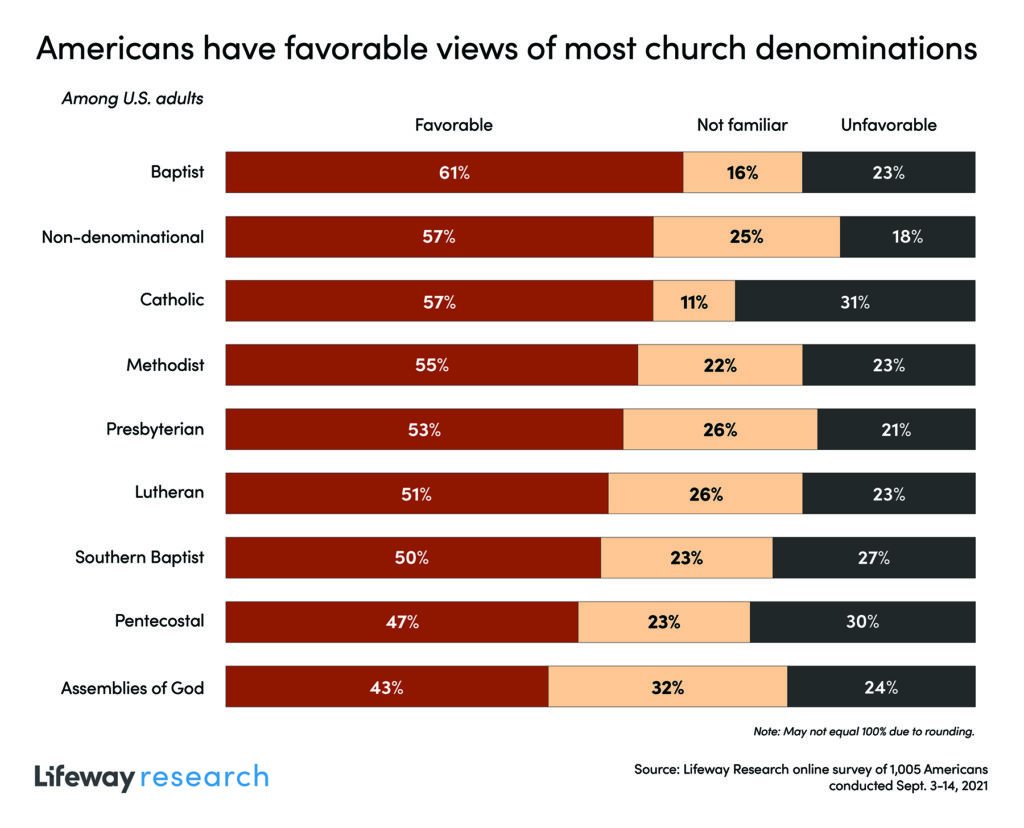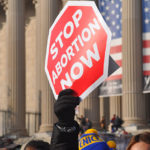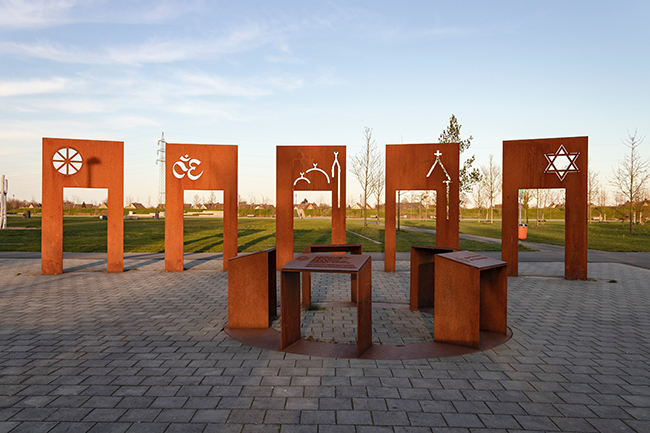
Americans give Christianity the highest favorability rating of religious groups, but specific Christian groups fall lower on the rankings.
By Aaron Earls
Overall, Americans like Christianity, but they aren’t as keen on some of the specific Christian groups.
A YouGov survey asked U.S. adults whether they viewed 35 different belief systems as very favorable, somewhat favorable, neither favorable nor unfavorable, somewhat unfavorable, or very unfavorable. The combined scores demonstrate just how positively Americans view religious groups.
Christianity had, by far, the highest favorability score (+35), followed by Protestantism (+15). Other Christian groups also had positive ratings, including the Amish (+11), Catholicism (+10), Presbyterianism (+8), Methodism (+5), The Church of God in Christ (+5), Lutheranism (+5), Anglicanism (+3), the Episcopal Church (+3), the Eastern Orthodox Church (+2), and the Mennonite Church (+1). The Assemblies of God have a net score of 0.
Baptist groups face a more uphill perception battle as the Southern Baptist Convention (-5) and the National Baptist Convention (-6) have negative favorability scores.
The highest-ranking non-Christian groups are Judaism (+11) Buddhism (+10), Orthodox Judaism (+3), and Hinduism (0).
Agnostics (-4) and atheism (-13) have slightly unfavorable scores. The lowest-ranking religious groups are the Church of Scientology (-49) and Satanism (-49).
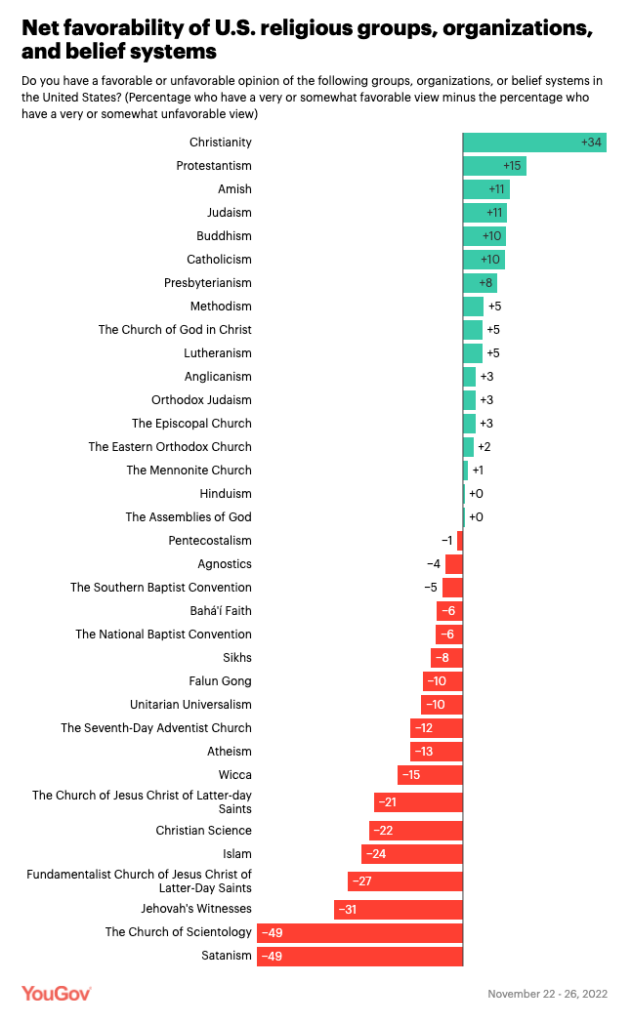
Respondents could also say they weren’t sure about a religious group. Americans are least familiar with Unitarian Universalism (28% say not sure), Sikhism (28%), Baháʼí Faith (32%), and Falun Gong (42%). Fewer than 1 in 10 say they’re not sure about the Church of Jesus Christ of Latter Day Saints (9%), Catholicism (8%), and Christianity (7%).
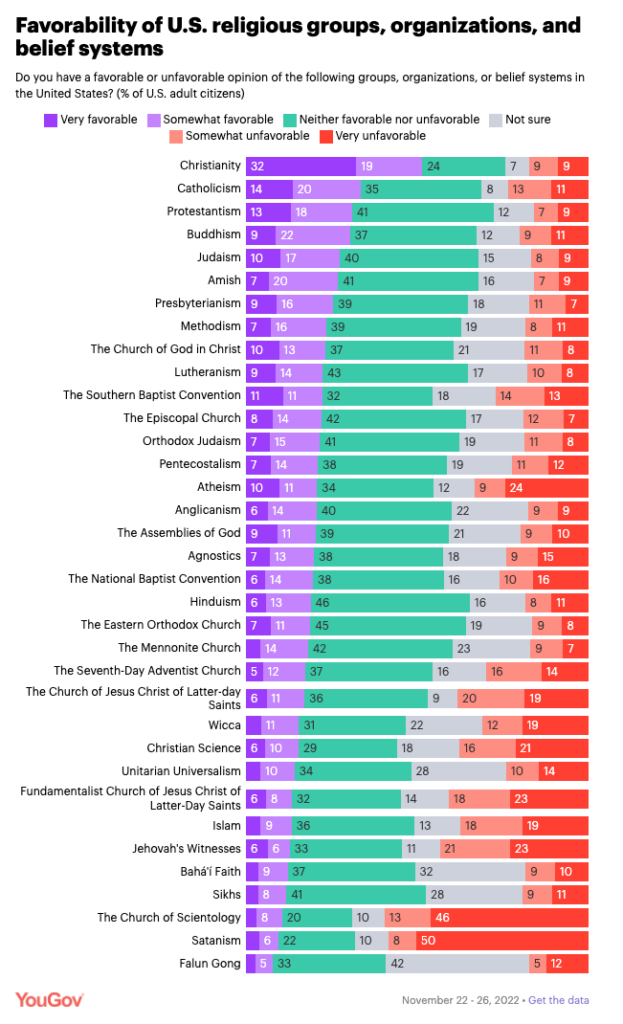
Unsurprisingly, people who say religion is very important to them often have a vastly different perspective on faith groups than those who say religion is not very or not at all important to them. Among the irreligious, only four groups had a positive favorability score: Buddhism (+26), atheism (+19), agnosticism (+19), and Hinduism (+6).
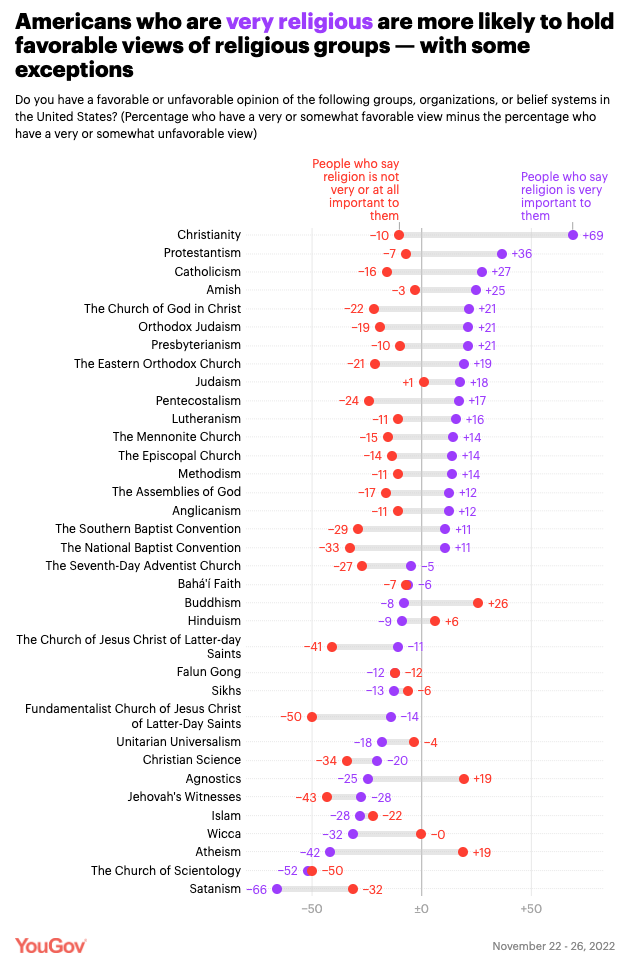
In a recent Lifeway Research study, few Americans say they automatically reject a church because of their denominational affiliation. Only about Pentecostal churches (51%) did a majority of Americans say they assume that church is not for them.
In Lifeway Research’s study specifically about Christian denominational groups, more Americans had a favorable view of Baptists (61%), followed by non-denominational (57%), Catholic (57%), Methodist (55%), Presbyterian (53%), and Lutheran (51%) churches. The public is more split when it came to Baptist (50%) and Pentecostal (47%) churches. Assemblies of God (43%) have the lowest percentage who view them favorably.
